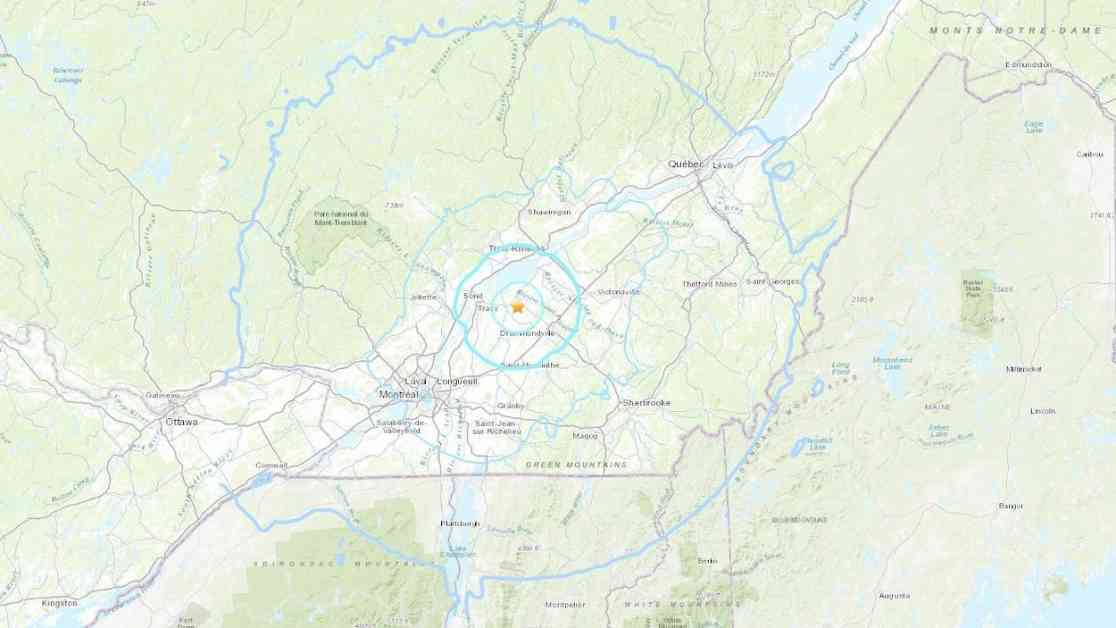A magnitude 4 earthquake shook Quebec City in the early hours of Sunday morning, waking up many residents in the region. The epicenter of the 4.6 magnitude quake was located in Pierreville, in the Centre-du-Québec region. While no injuries or damages were reported in Pierreville, the tremors were felt across several regions, including Mauricie, Centre-du-Québec, Charlevoix, Bas-Saint-Laurent, Grand Montreal, Laurentides, and Outaouais.
Fear and Relief
Despite the scare caused by the earthquake, the 2000 residents of Pierreville were fortunate to escape unharmed. One local resident described the experience as feeling like the ground was shifting beneath their feet, accompanied by a loud noise that seemed like a large truck crashing into a building. Mayor André Descôteaux recalled a similar event occurring about thirty years ago and expressed concerns about potential ground instability due to recent landslides in the area. Fortunately, no damages were observed after thorough inspections.
Expert Analysis
Retired sismologist Reynald du Berger from the University of Quebec at Chicoutimi reassured the public that if the earthquake had caused any significant damage, it would have been evident by now. He emphasized the rarity of a 4.6 magnitude earthquake in the region and believed it to be an isolated event. While larger earthquakes can follow smaller ones, du Berger noted that such occurrences are uncommon.
Rare Occurrence
Du Berger referenced the 1988 earthquake in Saguenay, which was preceded by a magnitude 4 quake two days prior, as an example of potential seismic activity patterns. Mareike Adams, an seismic analyst from Natural Resources Canada, explained that the Western Quebec seismic zone covers a vast area, including the Outaouais Valley from Montreal to Témiscamingue, as well as parts of Laurentides and Eastern Ontario. Urban areas like Montreal, Ottawa-Hull, and Cornwall fall within this zone. While earthquakes occur every five days on average in this region, most are minor and go unnoticed by the population.
Public Response
Following the earthquake in Quebec City, nearly 3000 reports of people feeling the tremors were submitted to the Seism Canada website. This high level of public engagement highlights the importance of earthquake monitoring and preparedness measures. In response to the seismic activity, a new early earthquake detection system was activated in British Columbia to provide advance warning to the public in case of future earthquakes. Mareike Adams mentioned that a similar system would be implemented in Eastern Canada later in the year, ensuring that residents are better equipped to respond to potential seismic events.
Looking Ahead
As experts continue to monitor seismic activity in Quebec and across Canada, it is essential for residents to stay informed about earthquake preparedness measures. While earthquakes are relatively rare in Quebec compared to regions like the Pacific Ring of Fire, the potential for significant seismic events remains a reality. By staying informed, participating in emergency drills, and having a plan in place, residents can minimize the impact of earthquakes on their communities. Additionally, ongoing research and monitoring efforts will help scientists better understand the underlying causes of earthquakes and improve early warning systems for the future.

